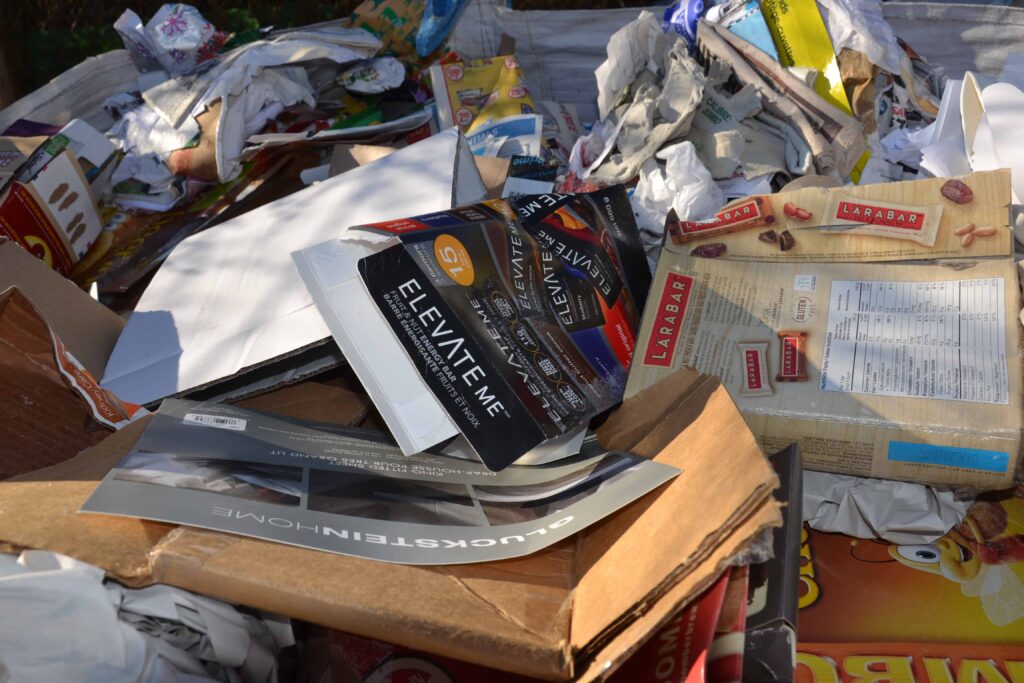There have been some recent changes to paper/cardboard markets that need all collectors (depots, curbside, and multi-family) to be extra diligent about the amount of contamination and cross contamination in the recycling stream.
What has changed?
The majority of the paper/cardboard collected under the Recycle BC program is shipped to China and processed into new paper products. Recently, the Chinese government initiated a campaign entitled National Sword 2017, which aims to improve compliance with applicable regulations and to prevent contaminated waste from entering the country.
What this means:
The allowance for contamination and cross-contamination such as plastic and metal permitted in paper/cardboard bales being shipped from BC has decreased substantially. Entire shipments of paper/cardboard may be rejected if contamination rates are too high. What passed as “clean enough” in the past simply may no longer be accepted moving forward so we want to take pro-active steps to ensure our materials continues to be accepted. We all share a responsibility in ensuring paper continues to be accepted by our recycling markets.
Why it’s important:
High levels of material contamination not only risks rejection at the port, it can also negatively impact equipment and safety at receiving facilities. During the sorting process for single-stream materials, where there is no sorting done at the household level, paper/cardboard is separated from other material such as plastic containers and metal containers using automated processing equipment. In addition to jamming machinery, plastic bags and other non-accepted types of film packaging can significantly impact this sorting process. Given their size, weight and general characteristics, plastic bags are often sorted into the paper/cardboard stream by the processing equipment if incorrectly comingled in the recycling by residents. This can severely impact the quality of the paper/cardboard and could pose a significant risk to the viability of existing recycling markets.
What happens next:
In efforts to improve the quality of our fibre products, Recycle BC will be increasing our communications with BC residents to ensure they understand the importance of keeping plastic bags out of curbside and multi-family materials. Collectors, in turn, are asked to be increasingly diligent about communicating with residents about the importance of not including plastic bags and, most importantly, continuing to actively enforce this requirement at the curb and in multi-family buildings.
Thanks for working with us to keep contamination out of our recycling streams.




